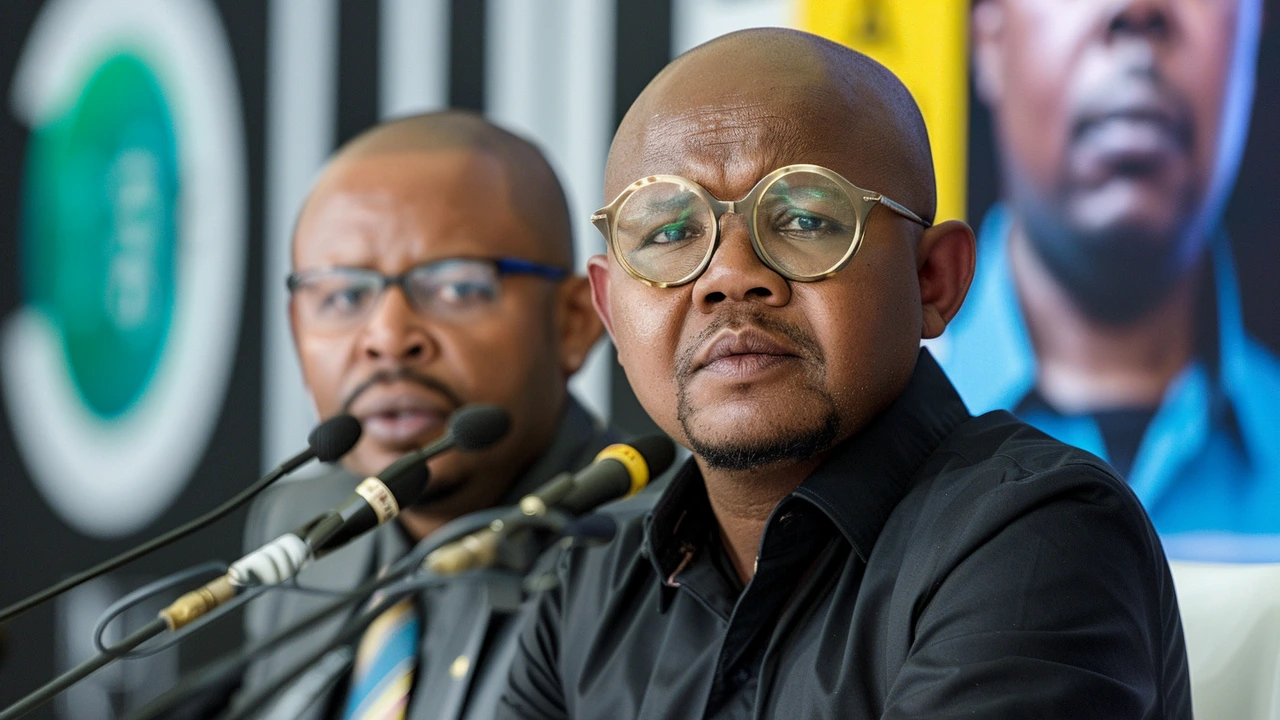Arthur Zwane's Resignation: A New Blow to MKMVA Amid Ongoing Power Struggles

Arthur Zwane's Resignation: A New Blow to MKMVA Amid Ongoing Power Struggles
Arthur Zwane, known for his pivotal role in the uMkhonto weSizwe Military Veterans Association (MKMVA), has officially resigned from his post as secretary-general. This marks the third departure of a key leader from the position, following Kebby Maphatsoe and Thandi Modise. The political landscape of the MKMVA has been fraught with tension, and Zwane’s exit underscores the deeper issues of infighting and factionalism that have plagued the organization.
The Context Behind Zwane's Resignation
Zwane's resignation, tendered in a letter dated July 1, cited 'personal reasons' as his rationale. While this stated cause may appear straightforward, sources within the MKMVA suggest a more complex backdrop. The party has been embroiled in power struggles with various factions vying for control. This tumultuous environment has likely influenced Zwane’s decision to step down, indicating that internal dynamics are far more intricate than they appear on the surface.
His resignation is not just a procedural change but a significant event in terms of party dynamics. Previously, Kebby Maphatsoe and Thandi Modise had both vacated the same office, a sign that holding the position comes with substantial challenges. Each resignation follows a pattern of escalating tensions within the MKMVA, painting a troubling picture of its internal stability.
The Broader Implications
The MKMVA is not just any organization; it holds substantial sway within the African National Congress (ANC), South Africa’s ruling party. As a key ally, the stability and unity of the MKMVA can have far-reaching impacts. Arthur Zwane was a crucial figure whose leadership significantly influenced the party's direction. His departure could create a vacuum that may exacerbate existing conflicts.
The infighting within the MKMVA is symptomatic of larger issues within South African politics. Factional battles often distract from policy-making and governance, leading to broader political instability. For the ANC, this development could be particularly unsettling, as it grapples with its challenges and strives to present a unified front to the electorate. The implications of Zwane’s resignation may ripple beyond the MKMVA, affecting the broader political landscape in South Africa.
Roots of the Issue: A Historical Perspective
The MKMVA has its roots in the armed wing of the ANC during the anti-apartheid struggle. The organization represents veterans who fought against apartheid and has traditionally held a prestigious position within South African political circles. However, the past years have seen it grappling with identity crises and power struggles.
As the veterans' organization navigates the transition from a liberation movement to a peacetime political entity, it has faced significant challenges. Leadership roles within the MKMVA come with high stakes, often involving intense internal scrutiny and external pressures. The departure of three essential leaders from the same position in a short span indicates deep-rooted issues that need addressing.
What Lies Ahead
The future of the MKMVA appears uncertain in the wake of Zwane’s resignation. As the organization searches for a new secretary-general, it will need to navigate a path fraught with potential pitfalls. The new leader will have to bridge the divides within the party and steer it towards stability. This task will undoubtedly be challenging, given the current factionalism and power struggles.
The ANC, too, will be closely monitoring developments within the MKMVA. Given the interconnectedness of these organizations, instability within the MKMVA can have a destabilizing effect on the ANC. The latter may need to intervene or offer support to ensure that its ally remains cohesive and effective.
Voices from Within
While official statements cite ‘personal reasons’ for Zwane’s resignation, insiders offer a different narrative. Several sources within the MKMVA, speaking on condition of anonymity, suggest that Zwane’s departure was almost inevitable given the internal strife. ‘The factionalism has reached a boiling point,’ one source remarked. ‘It was only a matter of time before something like this happened.’
These voices from within highlight the sense of inevitability surrounding the resignation. They suggest that without meaningful interventions and resolutions, more departures could follow. The sense of urgency within the MKMVA, and indeed within the ANC, to address these issues cannot be overstated.
The Political Ramifications
South Africa’s political theater is known for its complexity, and the situation within the MKMVA adds yet another layer. The ANC, already dealing with its challenges, will need to consider the implications of Zwane’s resignation carefully. This moment can be seen as an opportunity to address deep-rooted issues within its ally organization and, by extension, within its structures.
More broadly, the resignation could also influence public perception. The electorate is keenly aware of the internal dynamics within major political entities, and developments like these can sway public opinion. The ANC and MKMVA must present a cohesive narrative to maintain confidence among their supporters.
Looking Forward
As Arthur Zwane steps away from his role, the MKMVA stands at a crossroads. The journey ahead will require not only a new leader but also a renewed commitment to unity and purpose. The organization’s ability to navigate this period of change will significantly influence its future trajectory, as well as its relationship with the ANC.
The coming months will be critical for the MKMVA. How it chooses to handle the transition could either stabilize or further destabilize the organization. The stakes are high, and the need for effective, unified leadership has never been more urgent.